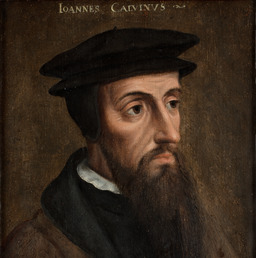Omniscience
Forums
John Sanford responds to Paul Helm regarding Open Theism in the book Perspectives on the Doctrine of God: Four Views: 1
Helm made three criticisms of open theism that are actually criticisms of any theology that affirms free will. For example, he said if God does not tightly control every detail in the world, then there is no guarantee that God will accomplish his plans.
This reasoning would mean that, if I did not have omnipotent micro-managing sovereign control over the entire universe, I could not be sure that I would go to church next Sunday.
One might argue that this is just up to me. If I planned something else that depended on the free will choice of someone else, then ... I could not be sure. Let's see. Large companies could not be sure of being able to sell their products next year, or even tomorrow, since the companies depend on the free will choices of their employees to actually arrive at work.
We can see how invalid this line of reasoning is, even for humans. It is much, perhaps infinitely, less valid for a powerful supernatural God.
Let's look now at the second point.
Second, Helm said that I am not entitled to say things such as “Christ has brought about our redemption, changing lives and societies,” since this entails irresistible grace.
It is obvious that humans have changed societies. Examples abound in history. In fact, every society in all of history has been changed by humans, and not only that, but more than that, all societies are largely, if not totally, organized by people and the result of human action. Lives also have been changed by people. Again, examples abound. Again, if people without omnipotence can do these things, how much more so can God.
Third, Helm said that a God who “is limited...is not 'God the Father almighty.'” ... Thomas Aquinas, defined omnipotence as “the ability to do anything that is not logically contradictory.” ... this definition of omnipotence has become the most widely accepted one among Christian philosophers.
God as Jesus limited himself. Jesus claimed that he did not know the time when he would return "in the clouds with great power and glory:"
And then shall they see the Son of man coming in the clouds with great power and glory.
...
But of that day and that hour knoweth no man, no, not the angels which are in heaven, neither the Son, but the Father.
- Mark 13:26, 32
And
Let this mind be in you, which was also in Christ Jesus:
Who, being in the form of God, thought it not robbery to be equal with God:
But made himself of no reputation, and took upon him the form of a servant, and was made in the likeness of men:
And being found in fashion as a man, he humbled himself, and became obedient unto death, even the death of the cross.
- Phil. 2:5-8
Well, this was Jesus as a man, not the Father. Whatever reasons we might come up with for asserting the claim about God the Father seem to apply to any and all members of the Godhead, except if they were not really God. Is the issue the nature of God-ness? If not, what else can it be? If we can qualify God-ness to make exception for the Son, then what reason is there for not also applying the same to the Father? I see no reason, other than our own personal preference, which is not sufficient for establishing doctrinal truth.
One might reason, but the Father and the Son really are different! The response is, they are both God. God can limit himself as He did in the incarnation. This means God can limit himself; if He did it once, he could do it again. God could limit his knowledge if he so chose. Why not? We obviously know God did limit himself in the incarnation, and not just some minor limitation of not knowing everything, but the more extreme limitation of physical death.
- 1Helm, Ware, Olson, Sanders (2008) Perspectives on the Doctrine of God: Four Views, B & H Publishing Group
- Log in to post comments
